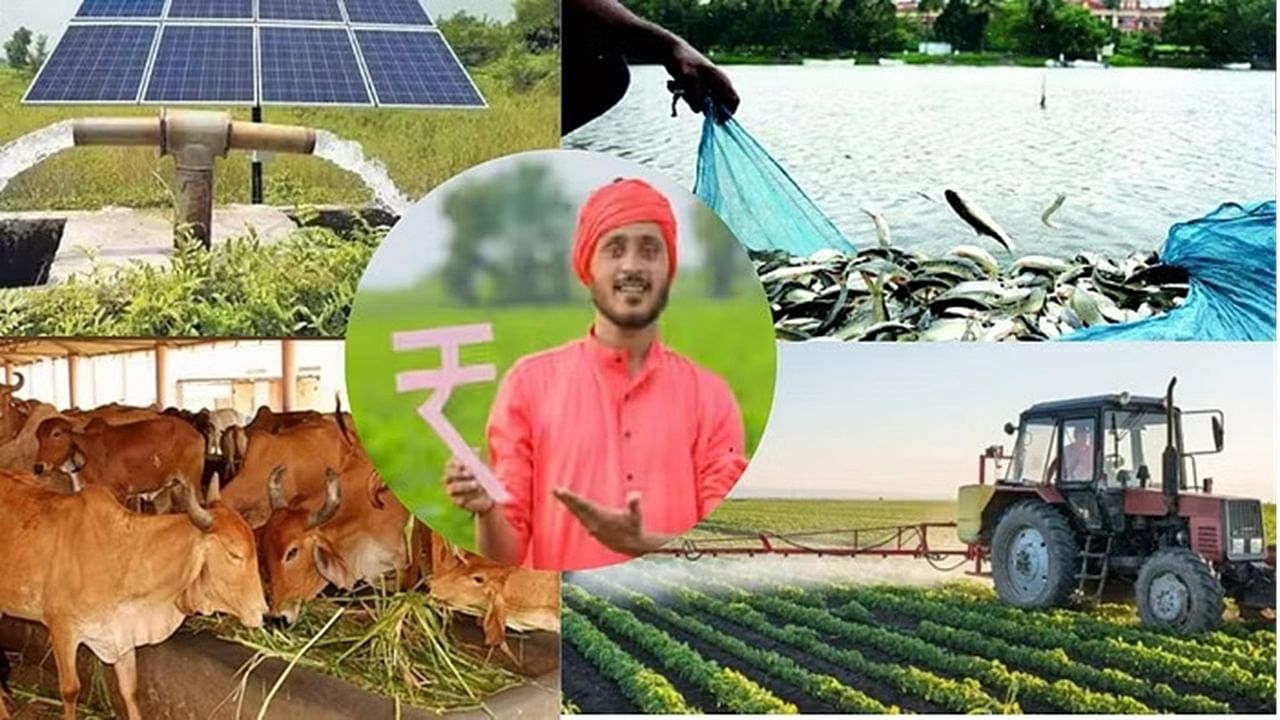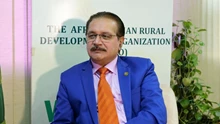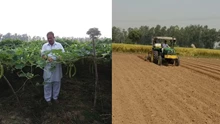
Over the years the government has launched 25 schemes specially tailored for farmers, intending to bolster the agricultural sector and empower farmers economically. The Ministry of Agriculture, under the Government of India, envisions these schemes to materialize dreams when farmers diligently adhere to the provisions, bridging the rural-urban gap and fostering agricultural employment for a robust Indian economy. These exceptional initiatives are set to fulfill the aspirations of rural inhabitants, marking a significant milestone in India's agricultural landscape.
In response to the imperative question of augmenting farmers' income, the Indian government has introduced multiple schemes to fortify the agricultural sector. These initiatives strengthen farmers' economic independence and self-respect through enhanced agricultural produce.
Nearly 60 percent of India's population, directly or indirectly, relies on agriculture. Whether independent laborers or dedicated cultivators, farming has provided sustenance. Financial independence and comprehensive perspectives stem largely from agriculture. Government schemes intervening timely in agricultural operations contribute significantly to farmers' economic stability. The list of government schemes designed for farmers is extensive, ranging from crop harvesting to storage facilities. Some notable schemes include:
- Prime Minister Matsya Sampada Yojana
- PM-KUSUM Scheme
- Sub-Mission on Agricultural Mechanization (SMAM)
- National Agriculture Market Scheme (NAM or e-NAM)
- Pradhan Mantri Kisan Samman Nidhi Yojana
- Pradhan Mantri Fasal Bima Yojana (PMFBY)
- Pradhan Mantri Krishi Sinchayee Yojana (PMKSY)
- Pradhan Mantri Kisan Mandhan Scheme
- Kisan Credit Card Scheme
- Soil Health Card Scheme
- Agriculture Infrastructure Fund (AIF) Scheme
- Krishi Udan Scheme
- Feed and Fodder Development Scheme
- Rashtriya Krishi Vikas Yojana (RKVY)
- Paramparagat Krishi Vikas Yojana (PMVY)
- Farmer Development Certificate Scheme
- Rashtriya Gokul Mission (RGM)
- Dairy Entrepreneurship Development Scheme
- National Horticulture Mission
- National Mission for Sustainable Agriculture(NMSA)
- Seed Village Scheme
- Organic Farming Incentive Scheme
- Farmer Producer Organization (FPO)
- Drones for Precision Farming
- National Beekeeping and Honey Mission Scheme
These schemes strive to alleviate the challenges faced by farmers and pave the way for a prosperous and self-reliant agricultural community in India. Applying for these initiatives could potentially transform the agricultural landscape and ensure a better future for the farming community.
Apart from the aforementioned schemes, there are several other initiatives.
1. Pradhan Mantri Kisan Samman Nidhi Scheme (PM-KISAN)
Under the PM-KISAN Scheme, farmers receive an annual financial assistance of Rs 6,000. This amount is sent to farmers' accounts in three installments of Rs 2,000 each at intervals of four months. Currently, 15 installments have already been transferred to farmers' accounts. If you haven't yet applied for this scheme, it is advisable to do so.
2. Pradhan Mantri Fasal Bima Yojana (PMFBY)
Started in 2016, PMFBY has become the world's largest crop insurance scheme, with more than 5.5 crore farmers registering for crop insurance annually. It ensures claims of maximum benefits at minimum premiums and is an easy process for farmers to insure their crops against natural calamities like rainfall, temperature variations, hailstorms, and humidity.
3. Kisan Credit Card Scheme
Any farmer involved in agriculture, fisheries, or animal husbandry can benefit from obtaining a Kisan Credit Card. Initiated in 1998, this scheme is run by various government and non-government banks across the country. It provides loans based on land cultivation and crop sowing for purchasing farm inputs like fertilizers, pesticides, machinery, and insecticides.
4. Pradhan Mantri Krishi Sinchai Yojana (PMKSY)
Adequate irrigation is crucial for cash crops. If farmers don't move towards self-dependence on irrigation from traditional sources, it could negatively impact agricultural production. The aim of this centrally sponsored PMKSY started in 2015, is to ensure sufficient water availability for farming, expand irrigation in agriculture-compatible areas, improve water use efficiency, and promote continuous water conservation measures. Farmers installing drip irrigation systems under this scheme receive subsidies.
5. Pradhan Mantri Matsya Sampada Yojana (PMMSY)
This scheme aims to further develop the fisheries sector in the country through the Blue Revolution. It is applicable for a complete period of five years from the financial year 2020-21 to 2024-25. Under this scheme, the government provides a loan of Rs 3 lakhs to farmers and also offers facilities like ponds, hatcheries, feeding machines, and quality testing labs.
6. PM Kusum Scheme
Under this scheme, the central government subsidizes the installation of solar pumps for farmers, enabling them to cultivate better crops at lower costs using solar energy. Farmers receive up to 90 percent subsidy for installing solar pumps under this initiative.
7. Sub-Mission on Agricultural Mechanization (SMAM) Scheme
The primary goal of this scheme is to make farming easier for farmers by establishing custom hiring centers, agricultural machinery banks, high-tech hubs, and providing grants for machinery distribution.
8. National Agricultural Market (NAM)
NAM, or e-NAM, is a national-level electronic portal-based market developed by the Ministry of Agriculture, Government of India. Its objective is to connect agricultural produce markets across different states through the Internet and create a unified national agricultural produce market (NAM).
9. Soil Health Card Scheme
Under this program, farmers conduct soil tests before cultivation based on which they carry out their farming activities. This approach reduces their farming expenses while enhancing the yield compared to previous harvests. When the soil is tested, deficiencies are identified, enabling corrective measures to improve soil quality. Additionally, it helps determine which crops will thrive best in that soil.
10. Farmers Producer Organization (FPO)
FPOs are self-help groups formed by farmers to assist one another. Joining these FPOs grants farmers access to seeds, fertilizers, pesticides, machinery, greenhouses, polyhouses, agricultural techniques, market linkages, training, networking, financial aid, and technical support, boosting their morale and improving their farming performance.
Under the leadership of Prof. M.S. Swaminathan, the Indian government established the National Farmers Commission in 2004. The aim was to benefit various types of agricultural production, attract educated youth towards farming, and prevent migration from villages to cities. Additionally, it aimed to ensure food and nutrition security.
The commission submitted its final report in October 2006. Based on the feedback from central ministries, state governments, and reassessed farmers, the government approved the National Farmers' Policy 2007. It focuses on farmers' self-esteem, human aspects, property enhancement and economic support to cope with circumstances like droughts and floods, and provides security measures like the use of the latest agricultural equipment, agricultural biosecurity, assistance for women, crop insurance, and minimum support prices.













